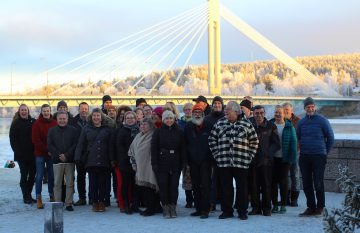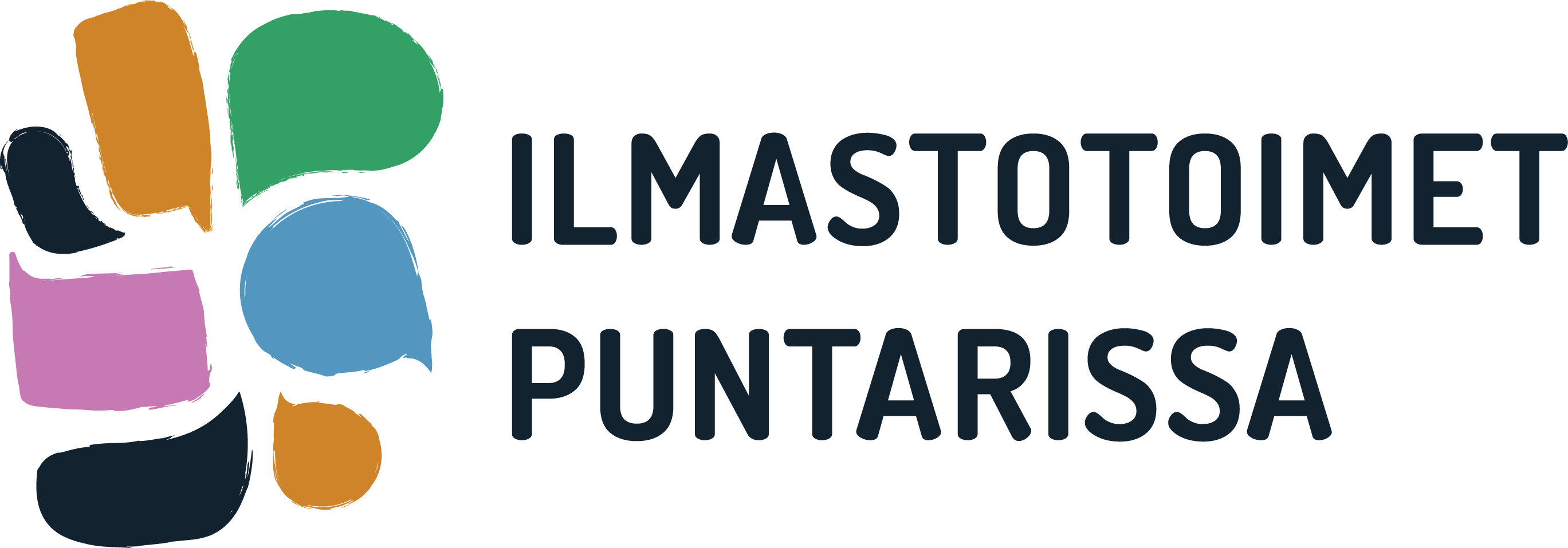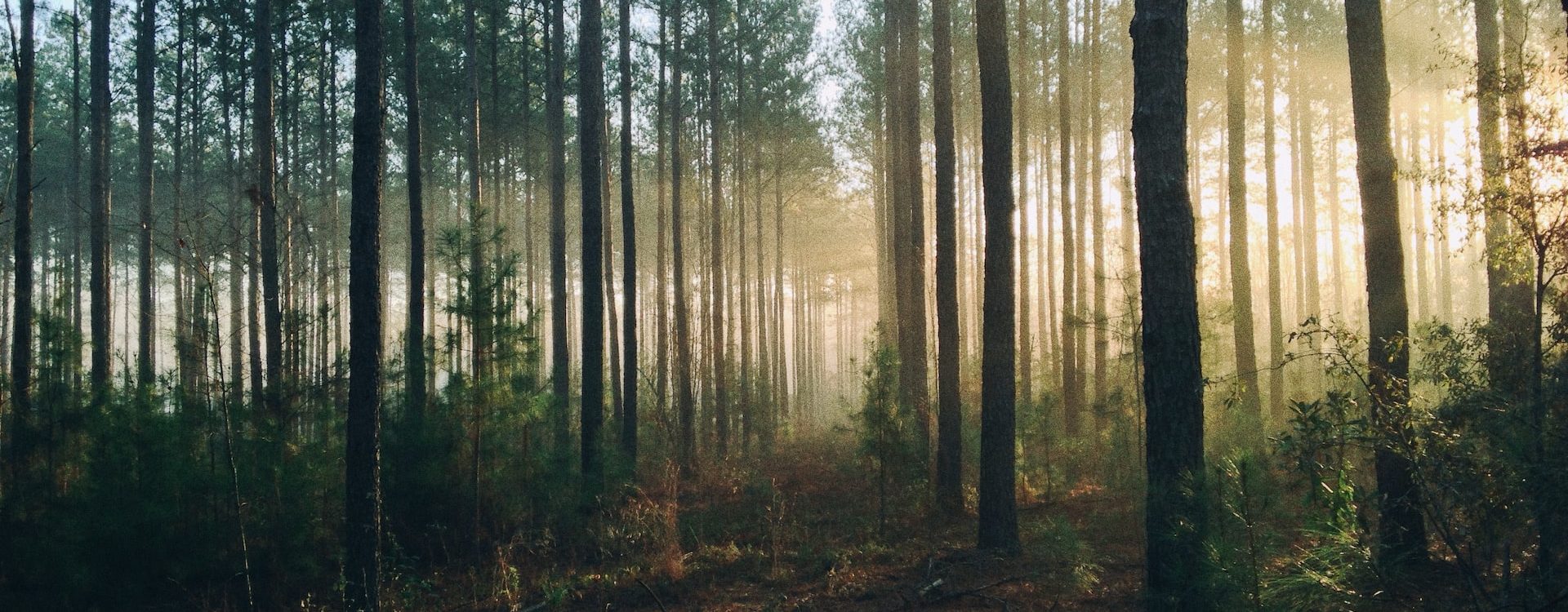Lapland Forest Jury
What is it about?
Climate change has created a need to evaluate the use of the forests in Finland including Lapland. The Regional Council of Lapland wanted to hear the views of the regions inhabitants and therefore convened the Citizens’ Jury on the fair use of the forest of Lapland. The mission of the Jury was to make recommendations to the Regional Council of Lapland on how to use the forests in a way that is both considering climate change and fair. The work of the Jury and the survey implemented at the same time are connected to the green transition program approved by the Regional Council of Lapland.
The invitation to the Jury and to answer the survey were sent in September to 6,000 randomly selected individuals living in the Lapland region. From the 240 people who volunteered to take part in the Jury, 33 people were randomly selected using quotas so that the Jury composition corresponded to the population of Lapland as well as possible. The Jury convened in two weekends in November 2022. The statement of the Jury was published and handed to the Regional Council of Lapland at the publishing event held on the 28th of November 2022.
The Citizens’ Jury followed deliberative mini-public method. In deliberative mini-public the participants familiarize themselves comprehensively with the topic under discussion for example by consulting experts and then discuss different views with people coming from different backgrounds. The principles followed in the discussions are honoring the other participants, justification and reflection of one’s own opinions and being open to the opinions of others. At the end of the discussion, the participants form a statement on the topic.

Information on the Lapland Forest Jury
What was the mission of the Lapland Forest Jury?
The mission of the Lapland Forest Jury was to draw up recommendations on what fair and climate change conscious forest use in Lapland looks like. The jury’s recommendations are not binding, but the jury’s goal is to bring a balanced citizen’s perspective into the discussion on the use of forests.
The jury’s recommendations are processed by the green transition division coordinated by the Regional Council of Lapland, which promotes and monitors Lapland’s transition to a green, sustainable economy. The division’s work is based on the Lapland Green Deal roadmap approved in 2021.
Who participated the Jury?
The composition of the Citizens’ Jury was chosen in two stages using random sampling. 6,000 people, who were invited to the jury, were selected from among all residents of the province of Lapland between the ages of 18 and 80 by random sampling of the Digital and Population Data Services Agency. Of those who received the invitation, 240 volunteered for the citizens’ jury.
The composition of the jury itself was formed from among the volunteers by stratified random sampling so that the composition of the jury was as diverse as possible and the selected group represented the residents of the province of Lapland as well as possible in terms of age, gender, educational background and place of residence. The goal was to form a jury of 35-40 people. If the person selected to the jury was unable to participate, an alternate person selected by random sampling was called in their place. In total, 33 people participated in the jury. The group of participants had diverse opinions. There were both forest owners and people who do not own a forest.
Where and when was the Jury organized?
The jury met in November 2022 on two weekends, November 5-6. In Levi and 19.11.-20.11. in Rovaniemi. All 33 jury members participated in both meetings. Between meetings on 17.11. the jury heard experts remotely via Teams. Members of the jury who could not participate in the remote hearing on 17 November were able to watch the recordings of the expert presentations afterwards.
How did the Jury work?
The Lapland Forest Jury followed the so-called method of deliberative mini-public. In a deliberative mini-public, the participants learn comprehensively about the topic under discussion by, among other things, consulting experts, and discuss and reflect on different perspectives together with people from different backgrounds. The principles to be followed in the discussion are respect for other participants, justification and consideration of one’s own points of view, and openness to the points of view of others. At the end of the discussion, the participants formulate a joint position on the topic under discussion.
Were the participants compensated for participating the Jury?
A 300 euro compensation was paid to the people who participated in the jury’s work from start to finish. On Jury weekends, accommodation was offered to out-of-town residents. All those participating in the Jury were reimbursed for their travel expenses and offered meals during the Jury days.
Who implemented the Jury?
The FACTOR project researchers from the Natural Resources Institute, the University of Turku and the Finnish Environment Institute were responsible for the recruitment and practical implementation of the jury. You can familiarize yourself with the research group on the Contact page. The convenor of the jury was the Regional Council of Lapland.
Additional questions are answered by the researchers of the Natural Resources Institute:
- research manager, leading researcher Katriina Soini, katriina.soini[at]luke.fi
- researcher Jaana Sorvali, jaana.sorvali[at]luke.fi
The materials and experts of the Lapland Forest Jury
The organizers prepared a written background information package on the state of Lapland’s forests and their use for the jury.
The following experts gave presentations to the jury:
- Mikko Jokinen (Natural Resources Institute): Forests in the life and culture of people of Lapland
- Hannele Korhonen (Institute of Meteorology): Finland’s climate policy – International, EU and national dimensions
- Päivi Magga (University of Oulu): The Sámi landscape perception
- Markus Melin (Natural Resources Institute): Diversity of forest nature, climate change and forest destruction risks
- Raisa Mäkipää (Natural Resources Institute): Forests, climate change and diversity
- Antti Mäkelä (Department of Meteorology): Impact of climate change in Lapland
- Ari Nikula (Natural Resources Institute): Forests, wind power and mining
- Pasi Rautio (Natural Resource Institute): Forest resources and the big picture of forest use in Lapland – vs the rest of Finland
- Seija Tuulentie (Natural Resources Institute): Lapland’s forests and tourism
In addition, Hanna-Leena Pesonen, sustainable development expert of the Regional Council of Lapland, was heard by the jury on the first weekend.

